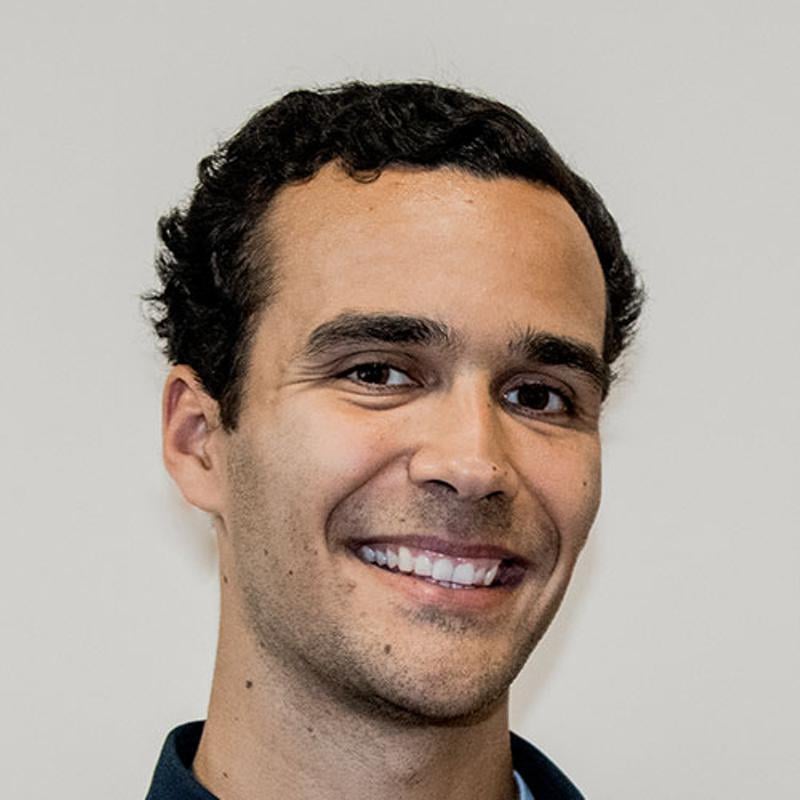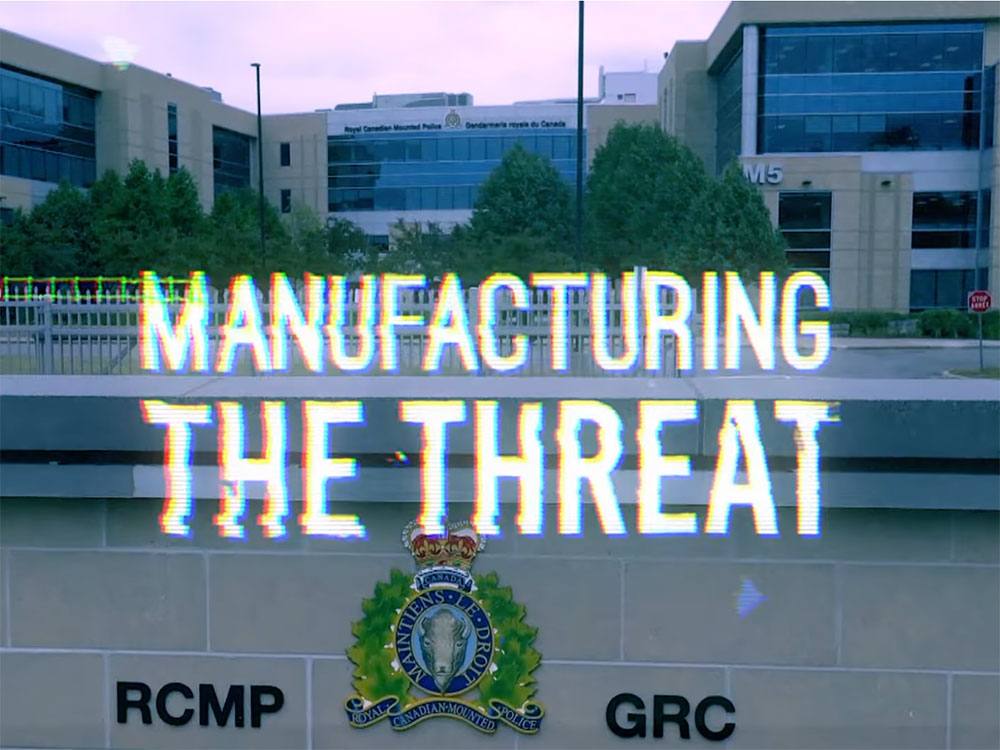When Amy Miller made her first documentary, she was catching the Canadian edge of a building wave.
It was the mid-2000s, and a time, Miller said, when documentaries of the era — such as Davis Guggenheim’s An Inconvenient Truth and The Power of Nightmares by Adam Curtis — were forging a new path as modes of transformative change. In Canada, she noted, Cinema Politica, a non-profit organization that supports independent, political filmmakers in this country, was becoming more prominent.
“There were a lot of those kinds of documentaries coming out,” Miller said. “A lot of different people who I’m connected to said ‘documentary was a big influence and change-maker.’”
Miller, who worked as a union organizer before filmmaking, has always been interested in activism and wanted to make a film that analyzed Canada’s war profiteering. She not only dreamed of completing that film, but also holding an intimate discussion with viewers that would draw on the themes of the documentary.
In 2009, her debut feature Myths for Profit: Canada’s Role in Industries of War and Peace was released, examining Canada’s history as a “peacekeeping nation” and interrogating the Canadian military industrial complex.
Miller took the film on tour across Canada for 10 weeks. The screenings were free, and accompanied by information sessions with social justice and peace organizations.
“It was kind of like a punk band on tour,” Miller said. “Everything was pay what you can, people would come in, not pay anything, watch the film, have a Q&A, and put in $50 [at the end].”
Documentaries, Miller believes, invite a viewer into the perspective of someone else. They serve as a gateway to let people see that there may not be only one overarching narrative to tell a story.
“We need to ensure that on a daily basis people are getting their protein that is anti-capitalist, anti-colonialist and speaking truth to power,” Miller said.
“That might be when cultural resistance becomes more and more mainstream.”
Miller’s latest film, Manufacturing the Threat, screening at the DOXA Documentary Film Festival on May 5, comes from a desire to tell another untold story.
The documentary follows the lives of Amanda Korody and John Nuttall, who goes by the name Omar in the film. In 2013, after the couple had converted to Islam, they were arrested for plotting to bomb the B.C. legislature.
Although a jury found the couple guilty in 2015, the charges were put on hold as a B.C. Supreme Court judge later ruled that Korody and Nuttall had been entrapped by undercover police officers guiding the couple into plotting a terrorist act.
Miller views the Korody and Nuttall entrapment as a catalyst to examine the history of surveillance in the Canadian government. And how undercover agents could use similar tactics to infiltrate movements led by other minority groups in the future.
Ahead of the festival, The Tyee caught up with Miller to talk about her new documentary and the power of film to hold organizations and people accountable.
This interview has been edited for length and clarity.
The Tyee: What inspired you to create Manufacturing the Threat?
Amy Miller: The main inspiration was the fact that no one had told this story. My buddy Alex Popovic wrote a book called Produire la menace (Manufacturing the Threat) and the film’s inspired from the book. He documents different cases about state surveillance as agent provocateurs.
I thought, “Wow, who has made the film that talks about this?’ So often [the discussion] comes down to “this happens in the States, with the FBI or the CIA using agent provocateurs.”
We know about cases where that happens, where they target activists. But who’s looking at Canada? As a producer, it’s not the smartest move because it limits your market in terms of who’s going to buy your film. The U.S. is a way bigger market. But in terms of popular education for the people here, it’s so important.
No one had made that film, and I have doubts if I hadn’t made it in five years, nevermind 10 years or 15 years, nobody else would.
Why do you think nobody else would have made the film?
I think it takes a tremendous amount of courage. Making critical films towards the state, there’s the possibility of it having consequences on your career.
It was a difficult film to fund. No broadcaster came on board. It’s a hot potato. Who wants to speak out against the Canadian state? I feel like within the last three years, with Black Lives Matter, there’s been much more of an openness to discuss security, national security, policing, how it operates and its impact on people.
But even now, I think it’s still extremely marginalized.
The film begins with people speaking about the history of the RCMP and Canadian surveillance, before getting into the Nuttall and Korody case. What was your decision-making process behind that introduction?
The whole idea is to show that this is not just one example, but there’s a systematic process to this. I’m not trying to create paranoia in people, but I’m trying to say: Look at how it’s been done historically.
It’s definitely part of the main thesis of the film. We have to understand this as being a pattern.
What was the process of reaching out to the RCMP?
I sent a couple emails. My film at the end originally said: “The RCMP and CSIS refused to participate in the film.” I removed that because they didn’t refuse, they just didn’t respond.
I took that out because I don’t want to delegitimize my film in terms of what is fact. I don’t want anyone to say this is a conspiracy film. These are all extremely well-documented, factual cases, examples and statements.
It’s a political essay.
What do you hope viewers take away from the documentary?
I hope that it creates a bit of a jolt. Collectively, I feel like we’re sleepwalking a little bit as a nation. Our discussion around what is national security needs to be broadened — housing for all, food sovereignty.
We really need to start deconstructing this notion of who is a terrorist. There has been such brainwashing for the last 25 years that Islam is the problem. In the film, we talk about the different interventions around white supremacy, how that radicalized hate is so marginalized in the media, and how we understand what is a threat to national security.
Climate change has to be understood as an existential threat. I would argue the fossil fuel industry, the extractive industry are holding our whole society hostage. But they still get the subsidies and all the corporate media fall in line.
That conversation needs to be broader, and there has to be an understanding and discussion around security and for whose interests it’s for.
A paradigm shift needs to happen.
Amy Miller is doing a masterclass as part of the DOXA Documentary Film Festival on May 6.
MORE DOXA GEMS
Manufacturing the Threat screens on May 5. Here are some other DOXA films Tyee readers might be interested in seeing, screening from May 4-14 in select Vancouver theatres and online:
Hell and Highwater
Canada, directed by Jeremy Williams
A film tracing recent catastrophic environmental events in British Columbia and their devastating impact on Indigenous communities from their racist and pro-corporate origins.
2012/Through The Heart
Canada, directed by Rodrigue Jean and Arnaud Valade
An account of the spectacle and brutal suppression of the 2012 student movement in Quebec, which saw nearly half of the university student population strike in protest of rising tuition costs.
Big Fight in Little Chinatown
Canada/USA, directed by Karen Cho
All across the globe, Chinatowns are under threat of disappearing — and along with them, the rich history of communities who fought from the margins for a place to belong. Chinatown communities are fighting to end perpetual gentrification and displacement.
Silvicola
Canada, directed by Jean-Philippe Marquis
An immense sensory contemplation of the entanglement of humans, machines and nature in the sprawling forests of the Canadian Pacific Northwest, told through multiple perspectives in the forestry industry.
Powerlands
Navajo Nation, directed by Ivey-Camille Manybeads Tso
At age 19, Ivey-Camille Manybeads Tso began making a film about her home, Dinétah, and the Navajo Nation’s struggle against resource colonization at the hands of the mining, oil and gas industries. Along the way, she discovered that her people were not alone.
Delikado
Philippines, directed by Karl Malakunas
Three land defenders on the island of Palawan fight to save their homeland from the violence of resource extraction, a growing tourism industry and corrupt politicians.
Kaatohkitopii: The Horse He Never Rode
Siksika, Alberta, directed by Trevor Solway
Filmmaker Trevor Solway reflects on the life and legacy of his late grandfather Sonny, a lifelong rancher of the Siksika Nation.
Shorts Program: I AM A (WO)MAN
Various, curated by Farah Clémentine Dramani-Issifou
A collection of shorts by Farah Clémentine Dramani-Issifou on transatlantic perspectives of political struggles in the '60s and '70s in Guinea-Bissau, Morocco, the USA and France. ![]()
This article is part of a Tyee Presents initiative. Tyee Presents is the special sponsored content section within The Tyee where we highlight contests, events and other initiatives that are either put on by us or by our select partners. The Tyee does not and cannot vouch for or endorse products advertised on The Tyee. We choose our partners carefully and consciously, to fit with The Tyee’s reputation as B.C.’s Home for News, Culture and Solutions. Learn more about Tyee Presents here.

















Tyee Commenting Guidelines
Comments that violate guidelines risk being deleted, and violations may result in a temporary or permanent user ban. Maintain the spirit of good conversation to stay in the discussion and be patient with moderators. Comments are reviewed regularly but not in real time.
Do:
Do not: